-
 Bitcoin
Bitcoin $93,186.7808
5.67% -
 Ethereum
Ethereum $1,790.8332
13.12% -
 Tether USDt
Tether USDt $1.0003
0.02% -
 XRP
XRP $2.2275
6.78% -
 BNB
BNB $615.2576
2.56% -
 Solana
Solana $149.4751
7.43% -
 USDC
USDC $0.9999
-0.01% -
 Dogecoin
Dogecoin $0.1818
12.68% -
 Cardano
Cardano $0.6921
10.63% -
 TRON
TRON $0.2475
0.57% -
 Chainlink
Chainlink $14.3998
9.70% -
 Avalanche
Avalanche $22.4621
12.88% -
 Sui
Sui $2.8002
25.37% -
 UNUS SED LEO
UNUS SED LEO $9.0584
-0.74% -
 Stellar
Stellar $0.2674
7.75% -
 Shiba Inu
Shiba Inu $0.0...01377
10.75% -
 Toncoin
Toncoin $3.1325
7.14% -
 Hedera
Hedera $0.1821
6.81% -
 Bitcoin Cash
Bitcoin Cash $357.0499
3.45% -
 Polkadot
Polkadot $4.0875
8.94% -
 Litecoin
Litecoin $84.5855
7.26% -
 Hyperliquid
Hyperliquid $19.0943
2.65% -
 Bitget Token
Bitget Token $4.6448
4.17% -
 Dai
Dai $0.9998
-0.01% -
 Ethena USDe
Ethena USDe $0.9994
0.02% -
 Pi
Pi $0.6524
3.07% -
 Monero
Monero $225.3741
4.74% -
 Pepe
Pepe $0.0...09153
14.40% -
 Uniswap
Uniswap $5.9461
12.68% -
 Aptos
Aptos $5.2797
8.51%
Poloniex Perpetual Contract Trading Rules
To engage in perpetual contract trading on Poloniex, traders must understand the concept of perpetual contracts, manage risk with leverage, be aware of funding rates and settlement mechanisms, and abide by various trading rules and considerations.
Nov 24, 2024 at 06:33 am

Poloniex Perpetual Contract Trading Rules
Poloniex, a renowned cryptocurrency exchange, offers perpetual contracts as a means for traders to gain exposure to the underlying cryptocurrency without actually owning it. These contracts are perpetual futures, meaning they do not have an expiry date. Traders can hold positions indefinitely or until they decide to close them. The following guide provides a comprehensive overview of the rules governing perpetual contract trading on Poloniex.
1. Understanding Perpetual Contracts
Before delving into the trading rules, it is essential to have a clear understanding of perpetual contracts. These contracts are standardized agreements between two parties, one taking a long position (betting on the rise in price) and the other taking a short position (betting on the fall in price). Perpetual contracts are settled daily based on the Mark Price, which is a reference price derived from the underlying spot market. The settlement value is adjusted according to the funding rate, which encourages market participants to maintain a balanced market.
2. Opening a Position
To open a perpetual contract position on Poloniex, traders must first create an account and fund it with either cryptocurrency or fiat currency. Once the account is funded, traders can navigate to the perpetual contracts trading interface. Here, they can select the desired contract, enter the desired position size, and choose between a long or short position. Positions can be opened using limit, market, or stop orders.
3. Managing Risk with Leverage
Perpetual contracts allow traders to use leverage, which amplifies both profits and losses. The amount of leverage available varies depending on the contract and the trader's account status. Higher leverage increases the potential return but also magnifies the risk of substantial losses. Traders should carefully consider their risk tolerance and trade within their means.
4. Funding Rates and Settlement
As mentioned earlier, perpetual contracts are settled daily based on the Mark Price. The funding rate, which is either positive or negative, is added to or subtracted from the Mark Price to determine the settlement value. Positive funding rates indicate a higher demand for longs, while negative funding rates indicate a higher demand for shorts. Traders holding long positions pay the funding rate, while those holding short positions receive it.
5. Margin Calls and Liquidations
When the market moves against a trader's position, it can result in a margin call. This occurs when the trader's account equity falls below a certain threshold. The trader is then required to deposit additional funds or margin to maintain the position. If the trader fails to meet the margin call, the position may be liquidated, resulting in the loss of the initial investment.
6. Trading Fees and Commissions
Poloniex charges various fees and commissions for perpetual contract trading. These include taker fees for executing market orders, maker fees for placing limit orders that add liquidity to the market, and funding fees for holding positions overnight. Traders should familiarize themselves with these fees before placing any trades.
7. Risk Management Strategies
Effective risk management is crucial for successful perpetual contract trading. Traders should employ various risk management strategies, such as using stop orders to limit losses, maintaining a low leverage ratio, and diversifying their portfolio with different contracts. They should also avoid overtrading and chasing losses.
8. Additional Rules and Considerations
In addition to the core trading rules, Poloniex has implemented various additional rules and considerations to ensure fair and orderly trading. These include minimum trade sizes, maximum position limits, and anti-manipulation measures. Traders should carefully ознакомиться themselves with these rules and adhere to them at all times.
Disclaimer:info@kdj.com
The information provided is not trading advice. kdj.com does not assume any responsibility for any investments made based on the information provided in this article. Cryptocurrencies are highly volatile and it is highly recommended that you invest with caution after thorough research!
If you believe that the content used on this website infringes your copyright, please contact us immediately (info@kdj.com) and we will delete it promptly.
- Bitcoin Breaks Through $90,00 as Trump Says He Has 'No Intention' of Firing Fed Chair Jerome Powell
- 2025-04-23 12:35:12
- Musk: Not quitting DOGE, just reducing time allocation
- 2025-04-23 12:35:12
- US Securities and Exchange Commission charges man who allegedly created crypto scheme that swindled 90,000 people out of $200M
- 2025-04-23 12:30:12
- Bitcoin Breaks Above $89,000 to Hit Its Highest Price Since Early March
- 2025-04-23 12:30:12
- US President Donald Trump’s media conglomerate, Trump Media and Technology Group, has signed an agreement with crypto exchange Crypto.com
- 2025-04-23 12:25:12
- The DPDP Act - An Overview:
- 2025-04-23 12:25:12
Related knowledge
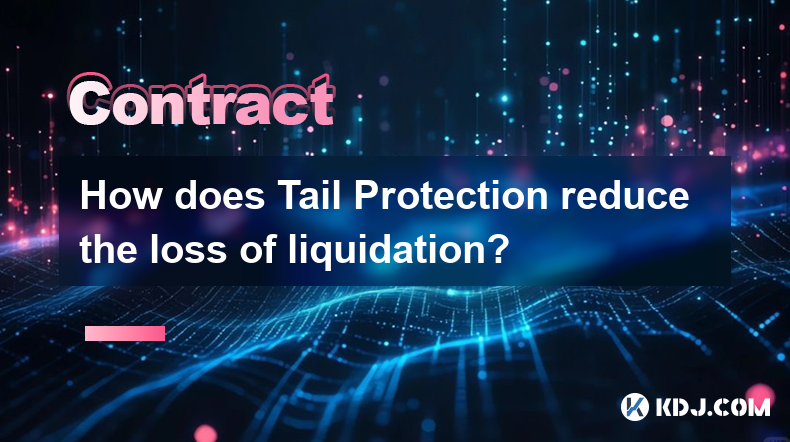
How does Tail Protection reduce the loss of liquidation?
Apr 11,2025 at 01:50am
Introduction to Tail Protection in CryptocurrencyTail Protection is a mechanism designed to mitigate the risks associated with liquidation in cryptocurrency trading. Liquidation occurs when a trader's position is forcibly closed by the exchange due to insufficient margin to cover potential losses. This often happens in leveraged trading, where traders b...
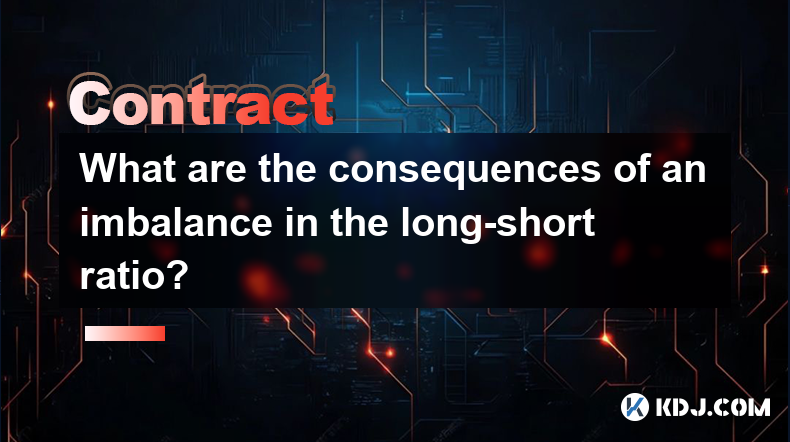
What are the consequences of an imbalance in the long-short ratio?
Apr 13,2025 at 02:50pm
The long-short ratio is a critical metric in the cryptocurrency trading world, reflecting the balance between bullish and bearish sentiments among traders. An imbalance in this ratio can have significant consequences on the market dynamics, affecting everything from price volatility to trading strategies. Understanding these consequences is essential fo...
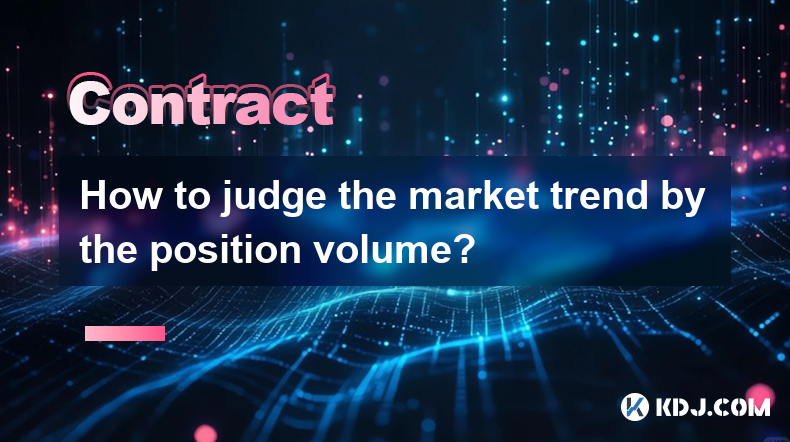
How to judge the market trend by the position volume?
Apr 11,2025 at 02:29pm
Understanding how to judge the market trend by position volume is crucial for any cryptocurrency trader. Position volume, which refers to the total number of open positions in a particular cryptocurrency, can provide valuable insights into market sentiment and potential price movements. By analyzing this data, traders can make more informed decisions ab...

Why does a perpetual contract have no expiration date?
Apr 09,2025 at 08:43pm
Perpetual contracts, also known as perpetual futures or perpetual swaps, are a type of derivative product that has gained significant popularity in the cryptocurrency market. Unlike traditional futures contracts, which have a fixed expiration date, perpetual contracts do not expire. This unique feature raises the question: why does a perpetual contract ...
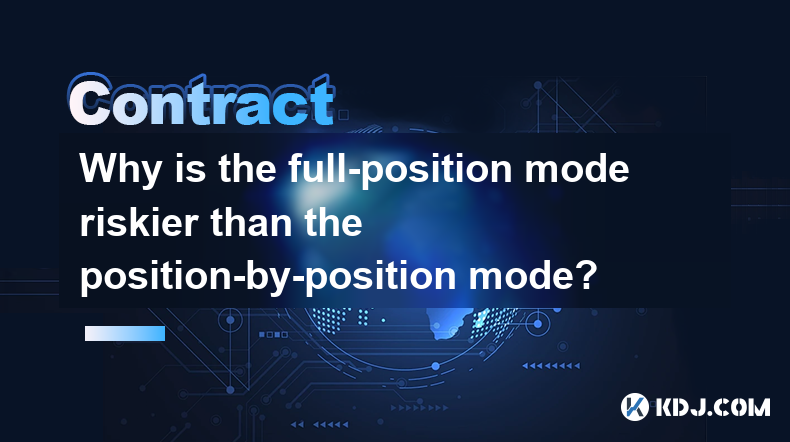
Why is the full-position mode riskier than the position-by-position mode?
Apr 13,2025 at 03:42pm
Why is the Full-Position Mode Riskier Than the Position-by-Position Mode? In the world of cryptocurrency trading, the choice between full-position mode and position-by-position mode can significantly impact the risk profile of a trader's portfolio. Understanding the differences between these two modes is crucial for making informed trading decisions. Th...
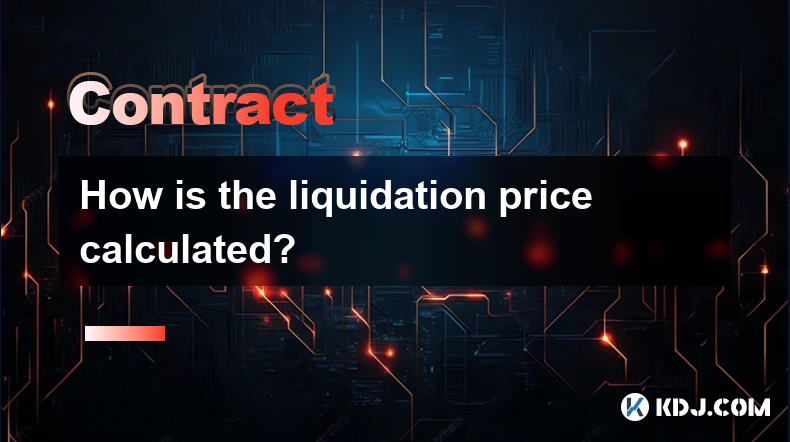
How is the liquidation price calculated?
Apr 12,2025 at 01:35am
Introduction to Liquidation PriceLiquidation price is a critical concept in the world of cryptocurrency trading, particularly when dealing with leveraged positions. Understanding how this price is calculated is essential for traders to manage their risk effectively. The liquidation price is the point at which a trader's position is forcibly closed by th...

How does Tail Protection reduce the loss of liquidation?
Apr 11,2025 at 01:50am
Introduction to Tail Protection in CryptocurrencyTail Protection is a mechanism designed to mitigate the risks associated with liquidation in cryptocurrency trading. Liquidation occurs when a trader's position is forcibly closed by the exchange due to insufficient margin to cover potential losses. This often happens in leveraged trading, where traders b...

What are the consequences of an imbalance in the long-short ratio?
Apr 13,2025 at 02:50pm
The long-short ratio is a critical metric in the cryptocurrency trading world, reflecting the balance between bullish and bearish sentiments among traders. An imbalance in this ratio can have significant consequences on the market dynamics, affecting everything from price volatility to trading strategies. Understanding these consequences is essential fo...

How to judge the market trend by the position volume?
Apr 11,2025 at 02:29pm
Understanding how to judge the market trend by position volume is crucial for any cryptocurrency trader. Position volume, which refers to the total number of open positions in a particular cryptocurrency, can provide valuable insights into market sentiment and potential price movements. By analyzing this data, traders can make more informed decisions ab...

Why does a perpetual contract have no expiration date?
Apr 09,2025 at 08:43pm
Perpetual contracts, also known as perpetual futures or perpetual swaps, are a type of derivative product that has gained significant popularity in the cryptocurrency market. Unlike traditional futures contracts, which have a fixed expiration date, perpetual contracts do not expire. This unique feature raises the question: why does a perpetual contract ...

Why is the full-position mode riskier than the position-by-position mode?
Apr 13,2025 at 03:42pm
Why is the Full-Position Mode Riskier Than the Position-by-Position Mode? In the world of cryptocurrency trading, the choice between full-position mode and position-by-position mode can significantly impact the risk profile of a trader's portfolio. Understanding the differences between these two modes is crucial for making informed trading decisions. Th...

How is the liquidation price calculated?
Apr 12,2025 at 01:35am
Introduction to Liquidation PriceLiquidation price is a critical concept in the world of cryptocurrency trading, particularly when dealing with leveraged positions. Understanding how this price is calculated is essential for traders to manage their risk effectively. The liquidation price is the point at which a trader's position is forcibly closed by th...
See all articles























































































